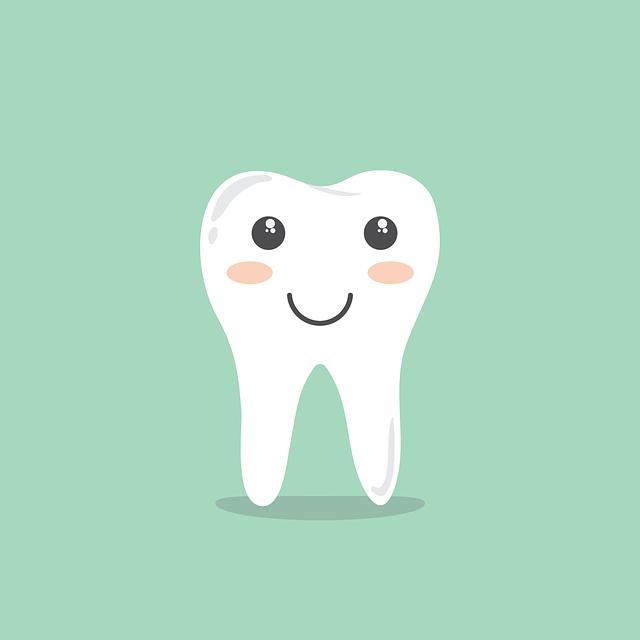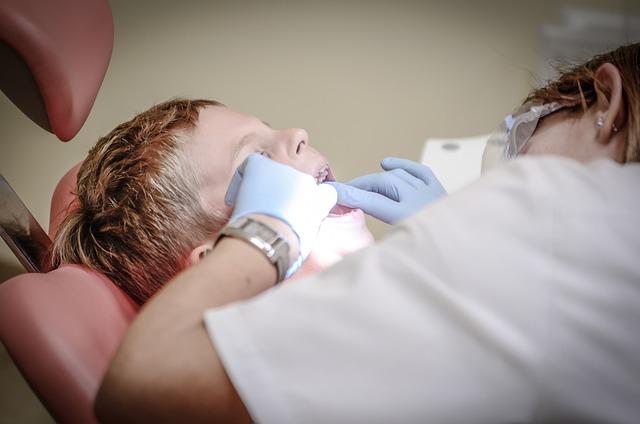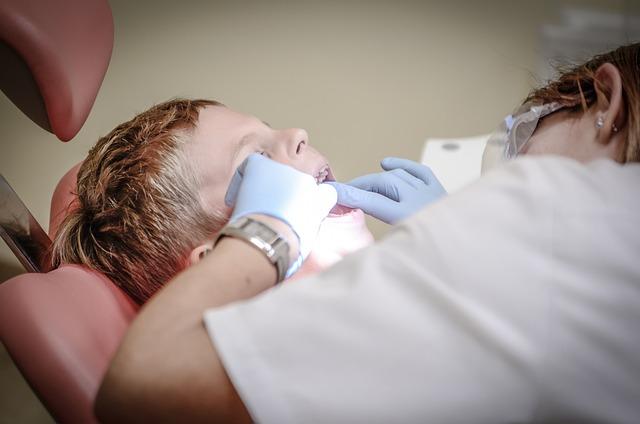Is Salt Good or Bad for Your Teeth? Dental Insights Discussed
Salt is a staple ingredient in our daily lives, enhancing the flavors of our favorite dishes and adding that extra kick to our taste buds. But have you ever wondered how this humble seasoning affects our dental health? The debate surrounding salt’s impact on teeth has left many of us puzzled. So, let’s delve into the world of dental insights and explore the age-old question: is salt good or bad for your teeth? Armed with expert knowledge, we will navigate through the facts, debunk the myths, and uncover the truth about salt’s relationship with our pearly whites. Get ready to take a bite into this informative journey and discover the secrets behind salt’s dental impact!
1. The Role of Salt in Dental Health: Unraveling the Truth Behind the Claims
There has been much debate surrounding the role of salt in dental health, with various claims being made about its effects. To better understand the truth behind these claims, it is important to examine the scientific evidence and separate fact from fiction.
1. Saltwater rinses for oral care:
- One commonly touted benefit of salt in dental health is its use in saltwater rinses. These rinses are believed to have antimicrobial properties that can help reduce inflammation and promote healing.
- While there is some evidence to support the use of saltwater rinses as an adjunct to regular oral care, it is important to note that they are not a substitute for brushing and flossing.
- Consulting with your dentist or dental hygienist is crucial to determine the appropriate frequency and concentration of saltwater rinses for your specific needs.
2. Salt as a tooth whitener:
- Another claim surrounding salt and dental health is its ability to whiten teeth.
- However, there is limited scientific evidence to support this claim. While salt may have abrasive properties, it is not a substitute for professional teeth whitening treatments.
- It is always best to consult with a dental professional before attempting any DIY teeth whitening methods, including those involving salt.
3. Salt’s impact on tooth decay:
- Some individuals argue that consuming salt can contribute to tooth decay.
- It is important to note that tooth decay is primarily caused by the interaction of bacteria and sugars, rather than salt consumption alone.
- Maintaining a balanced diet, practicing good oral hygiene, and regular dental check-ups are more effective ways to prevent tooth decay than solely focusing on salt intake.
2. Debunking Myths: Exploring the Effects of Salt on Tooth Enamel
There are many misconceptions surrounding the effects of salt on tooth enamel. Let’s take a closer look at these myths and separate fact from fiction:
Myth 1: Salt is harmful to tooth enamel.
Contrary to popular belief, salt itself does not directly harm tooth enamel. In fact, salt can be beneficial in maintaining oral health. It has antibacterial properties that can help reduce the risk of gum disease and tooth decay. However, excessive consumption of highly salty foods or drinks can lead to dehydration, which may indirectly affect tooth enamel.
Myth 2: Saltwater rinses can erode tooth enamel.
Using saltwater rinses as a part of your oral hygiene routine is generally safe and does not erode tooth enamel. In fact, it can help soothe gum inflammation and promote healing. However, it’s important to use a balanced saltwater solution and not to overuse it, as excessive rinsing can disrupt the natural pH balance in the mouth and potentially lead to enamel erosion over time.
Myth 3: Salt can whiten teeth.
While salt has abrasive properties, it is not an effective teeth whitening agent on its own. Brushing your teeth with salt or using salt-based DIY whitening recipes can be too harsh and lead to enamel erosion. It’s best to consult with a dental professional for safe and effective teeth whitening options.

3. Understanding Saliva: How Salt Influences Oral Hygiene and Prevents Tooth Decay
Saliva, an often overlooked aspect of oral health, plays a crucial role in maintaining a healthy mouth. One of the key components that influences saliva’s effectiveness is salt. The presence of salt in saliva acts as a natural disinfectant, helping to prevent the build-up of harmful bacteria and reducing the risk of tooth decay. Here’s a closer look at how salt influences oral hygiene and its benefits:
1. Anti-bacterial properties: Salt possesses antimicrobial properties, which means it can inhibit the growth of bacteria in the mouth. When salt is present in saliva, it creates an environment that is less favorable for bacteria to thrive, thus reducing the chances of developing oral infections.
2. pH balance: Saliva helps maintain a balanced pH level in the mouth, which is crucial for oral health. The salt content in saliva aids in stabilizing the pH, preventing it from becoming too acidic. This is important, as excessive acidity can lead to enamel erosion and tooth decay.
3. Natural remineralization: Saliva containing salt also promotes the remineralization process. This means that it assists in replenishing minerals, such as calcium and phosphate, that are essential for strong teeth and enamel. By remineralizing the teeth, salt in saliva helps to strengthen the tooth structure and prevent cavities.
In conclusion, understanding the influence of salt on oral hygiene is vital for maintaining a healthy mouth. Saliva enriched with salt offers natural protection against harmful bacteria, helps to balance pH levels, and supports the remineralization process. By incorporating good oral hygiene practices and being mindful of the role of salt in saliva, you can contribute to better overall dental health.
4. The Science Behind Saltwater Rinses: Evaluating Their Effectiveness in Dental Care
When it comes to dental care, saltwater rinses have gained popularity for their potential effectiveness. But what is the science behind these rinses, and do they really work? Let’s dive into the research and find out.
The benefits of saltwater rinses:
- Saltwater rinses have been found to have antimicrobial properties, meaning they can help kill bacteria in the mouth.
- They can reduce inflammation and promote healing of the gums, making them beneficial for individuals with gum disease.
- Saltwater rinses can also help alleviate discomfort caused by mouth ulcers or sore throat.
How do saltwater rinses work?
When salt is dissolved in water, it creates a saline solution. This solution has a higher concentration of salt than the cells in your mouth, which creates an osmotic effect. This means that water is drawn out of the bacteria, causing them to shrink and die. Additionally, the saltwater rinse can help remove debris and food particles from the mouth, further reducing the bacteria’s food source.
Research findings:
- A study published in the Journal of Clinical Periodontology found that saltwater rinses can be as effective as chlorhexidine mouthwashes in reducing bacteria in the mouth.
- Another study published in the Journal of Oral Health and Dental Management suggested that saltwater rinses may help reduce the risk of gum disease progression.
- However, it is important to note that more research is needed to fully understand the long-term effects and benefits of saltwater rinses in dental care.

5. Salt and Tooth Sensitivity: Examining the Link and Potential Remedies
One common issue that many people experience is tooth sensitivity, which can be caused by various factors. In recent years, there has been growing interest in examining the link between salt consumption and tooth sensitivity. While research is ongoing, there are some potential remedies that can help alleviate this discomfort.
Studies have suggested that a high intake of salt can contribute to tooth sensitivity. Excessive salt consumption may lead to the erosion of tooth enamel, which is the protective outer layer of the teeth. When the enamel wears down, the underlying dentin becomes exposed, causing sensitivity to hot, cold, sweet, or acidic substances.
Fortunately, there are several measures you can take to manage tooth sensitivity associated with salt consumption:
- Reduce salt intake: Limiting your consumption of salty foods and snacks can help minimize the risk of enamel erosion and subsequent tooth sensitivity.
- Practice good oral hygiene: Regular brushing with a soft-bristled toothbrush and using a fluoride toothpaste can help maintain enamel strength and protect against sensitivity.
- Use desensitizing toothpaste: Specifically formulated toothpaste can provide relief by reducing sensitivity and strengthening enamel.
- Avoid acidic foods and drinks: Acidic substances can further wear down enamel, so it is advisable to limit or avoid consuming them.
While the link between salt and tooth sensitivity is still being explored, taking these proactive measures can assist in managing and potentially reducing this common dental issue.

6. Salt vs. Sugar: Comparing the Impact on Dental Health
When it comes to dental health, the impact of salt and sugar can vary significantly. Understanding the differences between the two can help you make informed choices for maintaining a healthy mouth. Here’s a breakdown of how salt and sugar affect your dental health:
Salt:
- Salt, in moderation, can actually have some benefits for dental health.
- It helps stimulate saliva production, which is important for neutralizing acids and maintaining a healthy pH balance in the mouth.
- Saltwater rinses can also provide temporary relief for gum inflammation and soreness.
- However, excessive salt intake can lead to dehydration and other health issues, so it’s crucial to consume it in moderation.
Sugar:
- Sugar is a major culprit behind dental problems like tooth decay and cavities.
- When we consume sugary foods and beverages, bacteria in our mouth feed on the sugars and produce acids that attack tooth enamel.
- This acid can weaken the enamel, leading to tooth decay over time.
- Reducing sugar intake, especially in the form of sugary snacks and drinks, is essential for maintaining good dental health.
In conclusion, while salt can have some beneficial effects on dental health, excessive intake should be avoided. On the other hand, sugar consumption should be minimized to prevent tooth decay and cavities. Adopting a balanced diet, practicing good oral hygiene, and visiting your dentist regularly will help keep your teeth and gums healthy.

7. Salt as a Natural Antibacterial Agent: Assessing Its Potential Benefits for Oral Hygiene
Salt has been used for centuries as a natural antibacterial agent, and its potential benefits for oral hygiene have been gaining attention. Here are some key points to consider:
- Kills bacteria: Salt has antimicrobial properties that can help eliminate harmful bacteria in the mouth. It can be effective against various oral pathogens, reducing the risk of dental infections and gum diseases.
- Reduces inflammation: Salt can also help reduce inflammation in the gums, which is often associated with gum diseases like gingivitis. It has a soothing effect on irritated tissues and can promote healing.
- Improves bad breath: Salt can help freshen breath by neutralizing odor-causing bacteria. Gargling with a saltwater solution can help eliminate bacteria in the throat as well, reducing the chances of halitosis.
While salt can offer some benefits for oral hygiene, it is important to note that it should not replace regular brushing, flossing, and professional dental care. Incorporating salt as a complementary addition to your oral hygiene routine may provide some advantages, but it should not be relied upon solely for maintaining good oral health.
8. Salt Intake Guidelines: Striking a Balance for Optimal Dental Health
Salt Intake Guidelines for Optimal Dental Health
When it comes to maintaining optimal dental health, striking a balance in salt intake is crucial. While salt is an essential component of our diet, excessive consumption can have detrimental effects on our teeth and gums. To help you achieve a healthy balance, we have compiled a set of guidelines to ensure your dental well-being.
- Limit your daily salt intake: The World Health Organization recommends consuming less than 5 grams of salt per day to prevent various health issues, including dental problems. Excessive salt intake can lead to the accumulation of plaque, gum inflammation, and an increased risk of tooth decay.
- Choose low-sodium alternatives: Opt for low-sodium options when purchasing packaged or processed foods. Be mindful of hidden sources of salt, such as condiments, sauces, and canned goods. Reading nutritional labels can help you make informed choices.
- Adopt a balanced diet: Incorporate a variety of fresh fruits, vegetables, and whole grains into your meals. These foods are not only rich in essential nutrients but also help to enhance saliva production, which aids in washing away harmful bacteria and neutralizing acids in the mouth.
- Maintain proper oral hygiene: Brushing your teeth twice a day with fluoride toothpaste and flossing daily are fundamental habits for optimal dental health. Regular dental check-ups and professional cleanings also play a vital role in preventing dental issues related to salt intake.
By following these salt intake guidelines and adopting a well-rounded approach to dental care, you can ensure that your oral health remains in excellent condition. Remember, moderation is key, and striking the right balance will benefit not only your dental health but also your overall well-being.
9. The Hidden Dangers: Excessive Salt Consumption and its Impact on Tooth Health
Salt is a common ingredient in our daily diet, but excessive consumption can have hidden dangers, particularly when it comes to our tooth health. Here are some important points to consider:
The Impact on Tooth Enamel:
- Excessive salt intake can lead to the erosion of tooth enamel, the protective outer layer of our teeth.
- When enamel wears down, teeth become more vulnerable to cavities, tooth decay, and sensitivity.
- Over time, this can result in the need for dental treatments such as fillings, root canals, or even tooth extraction.
Increased Risk of Gum Disease:
- High salt consumption has been linked to an increased risk of gum disease, also known as periodontal disease.
- Gum disease occurs when the gums become infected and inflamed, leading to symptoms like bleeding, swelling, and bad breath.
- If left untreated, gum disease can progress to more severe conditions, including tooth loss.
Recommendations for Salt Consumption:
- To maintain optimal tooth health, it is recommended to limit daily salt intake to no more than 2,300 milligrams (about one teaspoon).
- Be mindful of hidden sources of salt in processed foods, such as snacks, canned goods, and condiments.
- Opt for fresh, whole foods whenever possible and flavor meals with herbs and spices instead of relying on excessive salt.
By being aware of the hidden dangers of excessive salt consumption and making mindful choices, we can protect our tooth health and maintain a confident smile.
10. Expert Recommendations: Incorporating Salt in Your Oral Care Routine
When it comes to maintaining good oral hygiene, incorporating salt into your daily oral care routine can have numerous benefits. Experts recommend the use of salt due to its natural antibacterial properties and ability to promote gum health. Here are some expert recommendations on how to incorporate salt into your oral care routine:
- Saltwater rinse: Start your day by rinsing your mouth with warm saltwater. This simple yet effective technique can help reduce inflammation, fight bacteria, and provide relief from minor mouth irritations.
- Salt-based toothpaste: Consider using a toothpaste that contains salt as an ingredient. Salt-based toothpaste can help remove plaque and stains, while also freshening your breath.
- Saltwater mouthwash: Incorporate a saltwater mouthwash into your routine by mixing a teaspoon of salt in a glass of warm water. Gargle with this solution for about 30 seconds after brushing your teeth to help kill bacteria and promote healthier gums.
Remember to consult with your dentist before making any changes to your oral care routine. With their guidance, incorporating salt into your routine can be a simple and effective way to enhance your overall oral health.
Frequently Asked Questions
Q: Is salt good or bad for your teeth?
A: Salt, when consumed in moderation, can be beneficial for maintaining good oral health. However, excessive consumption may have negative effects on your teeth.
Q: What are the benefits of salt for dental health?
A: Salt has antimicrobial properties that can help in reducing the growth of harmful bacteria in the mouth. It can also help in reducing inflammation and soothing gum irritation.
Q: Can salt be used as a natural remedy for toothache?
A: Yes, saltwater rinses can provide temporary relief for toothaches by reducing inflammation and killing bacteria. However, it is important to note that this is not a substitute for professional dental care.
Q: Does salt have any negative effects on teeth?
A: Consuming excessive amounts of salt can contribute to tooth enamel erosion, which may lead to tooth sensitivity and cavities. It is important to maintain a balanced diet and limit salt intake to avoid these issues.
Q: How can salt contribute to tooth enamel erosion?
A: High levels of salt in the diet can increase acidity in the mouth, which can lead to the breakdown of tooth enamel over time. This can make teeth more susceptible to damage and decay.
Q: Can saltwater rinses replace regular brushing and flossing?
A: No, saltwater rinses should not be used as a substitute for proper oral hygiene practices. Regular brushing, flossing, and dental check-ups remain essential for maintaining optimal dental health.
Q: Are there any specific recommendations for using salt in oral care?
A: It is recommended to use salt in moderation and as part of an overall balanced diet. If using saltwater rinses, it is important to follow proper guidelines and not rely solely on this method for oral hygiene.
Q: Can certain individuals be more susceptible to salt-related dental issues?
A: Yes, individuals with pre-existing dental conditions, such as enamel erosion or cavities, may be more prone to negative effects from excessive salt consumption. It is advisable for such individuals to consult with their dentist for personalized recommendations.
Q: What other factors contribute to dental health besides salt consumption?
A: Maintaining good dental hygiene practices, including regular brushing, flossing, and dental check-ups, along with a balanced diet and avoiding excessive sugar consumption, are crucial for maintaining healthy teeth and gums.
Q: What is the key takeaway regarding salt and dental health?
A: While salt can have some benefits for oral health, moderation is key. Excessive salt consumption can contribute to tooth enamel erosion, so it is important to maintain a balanced diet and practice good dental hygiene habits for overall dental health.
Insights and Conclusions
In conclusion, the question of whether salt is good or bad for your teeth has been thoroughly discussed, shedding light on dental insights that can guide our oral care routines.
The key takeaways from this article are as follows:
1. Salt can have beneficial effects on oral health when used in moderation. Its antibacterial properties can help combat harmful bacteria in the mouth, reducing the risk of cavities and gum disease.
2. However, excessive salt consumption can have negative consequences for our teeth. High salt intake can lead to dehydration, dry mouth, and an increased risk of tooth decay.
3. It is crucial to strike a balance and maintain a healthy level of salt in our diet. This can be achieved by avoiding processed foods that are high in sodium and instead opting for natural, unprocessed alternatives.
4. Regular oral hygiene practices such as brushing twice a day, flossing, and visiting the dentist regularly remain the foundation of good dental health. Salt should not be considered a substitute for these essential habits.
5. As with any dietary concern, it is always wise to consult with a dental professional to understand how salt intake may impact your specific oral health needs.
By staying informed about the effects of salt on our teeth and incorporating this knowledge into our oral care routine, we can make confident and knowledgeable decisions that promote a healthy smile. Remember, a balanced approach is key to maintaining optimal dental health.






